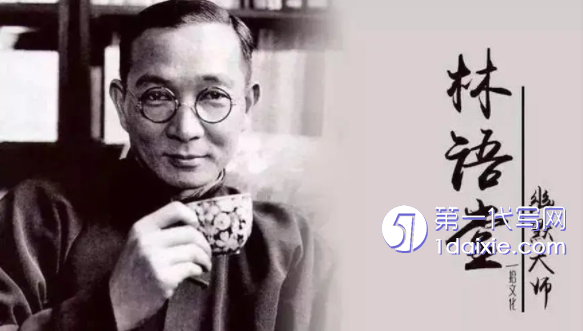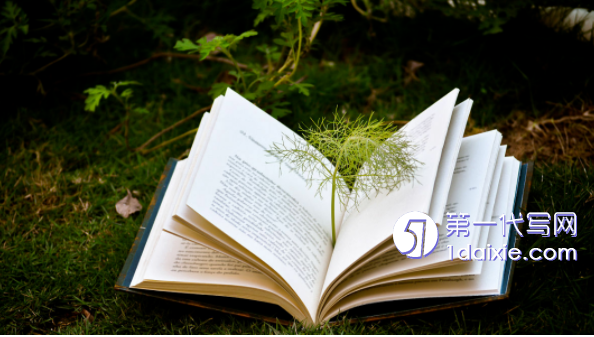本文是一篇英语毕业论文,本文以切斯特曼的翻译伦理模式作为研究框架,以林语堂的《幽梦影》英译本作为研究语料,运用文献查阅、综合分析等定性研究方法,再结合林语堂译本中语言层面、篇章层面、文化思维层面的英译实例,来探讨译者林语堂在翻译《幽梦影》时主要所倾向且呈现的翻译伦理模式,旨在探讨该理论在翻译策略选取上的指导作用。
Chapter One Introduction
1.1 Research background
Conventional translation studies prioritize the technical conversion and equivalence between two languages, where “faithfulness” is the criterion for translation quality. Jacobson, Catford, Nida, and Newmark are prominent scholars in translation studies who aim to identify linguistic equivalence between two languages. They argue that a translator who is fluent in both languages can accurately reproduce the source language's expression in the target language. The concept of mechanical equivalence in translation between two languages has had a negative impact on the translator's creativity. This type of transformation of equivalence undermines the translator's role and reduces them to merely a microphone or craftsman of copies (Xu, 2003). It is impossible to achieve complete equivalence of this kind, and translation ethics scholar Chesterman (1997) also believes in his monograph Translation Memetics that since complete equivalence is unattainable, it has become necessary to move away from the notion of "linguistic imprisonment" in the evolution of translation studies.
Starting from the 1990s, the research approach and domain of translation studies have undergone an unprecedented expansion. This has resulted in a broadening of the cultural research scope, indicating a comprehensive and multidisciplinary trend under the new cultural backdrop (H.T. Wang, 2008). Several translation theories that arose during the post-modern era, including post-colonialism, feminism, and deconstruction, have challenged the traditional view that translation should prioritize faithfulness and equivalence to the source text. Instead, these theories emphasize the cultural context of the translation process and propose that translation involves a dynamic exchange between two cultures, rather than simply a static transformation of language symbols. As a result, research has shifted from focusing solely on the source text to considering the two-way relationship between the source text and target text, and the translator's subjectivity has gained more attention from scholars.
1.2 Research purpose and research questions

This study takes Chesterman’s translation ethics models as the theoretical framework, and Lin Yutang’s English translation of Youmengying as the corpus. By analyzing some examples in the translation, this study explores the translation ethics that translators tend to adopt in the process of translation. Specifically, the primary focus of this study is to address the following three inquiries.
1) What are the philosophical thoughts represented in Youmengying?
2) What translation ethics does Lin Yutang show in his translation activities?
3) What implications can be gained from the translator’s preferred translation ethics model in translating classical literature like Youmengying?
By answering the above two questions, this study aims to realize the following value.
Chapter Two Literature Review
2.1 Previous research on translation ethics
This section is divided into two subsections. The first subsection introduces research on translation ethics abroad, while the second subsection discusses research on translation ethics at home.
2.1.1 Research on translation ethics abroad
The term “translation ethics” was first proposed by French translation theorist Antoine Berman. Subsequently, Western scholars such as Anthony Pym, Andrew Chesterman, and Lawrence Venuti have also discussed and supplemented the theory (Hou & Xu, 2013). When a theory emerges and develops, the primary task is to define its basic concepts clearly. Since the term “translation ethics” was proposed by foreign scholars, early foreign research mostly focused on the issue of concept definition. However, since “ethics” itself is a cross-cultural and cross-temporal issue (Shen & Quan, 2005), the definition of the connotation of “translation ethics” has been constantly changing with the development of the times, making it difficult to generalize. Therefore, the lack of definition or simple definition of the theoretical term “translation ethics” has long been a common phenomenon (D.Z. Wang, 2009). When scholars discuss the theory of “translation ethics”, they mostly put forward some constraints, basic requirements, and the scope of research, rather than directly defining the concept. Earlier, Berman has basically expounded his idea of “translation ethics” in his book Pour Une Critique des Traductions: John Donne, in which he advocates that translators are subjects with subjective initiative and can perform creative acts of translation, and that their rights should be respected (Berman, 1995). He fully affirms the leading role played by the translator in the translation process, but he also demands the translation ethics of the translator.
2.2 Lin Yutang and his translation
Lin Yutang’s creative and research career spanned six decades, and he left behind a wealth of achievements in different forms at different times, including novels, essays, translations, textbooks, dictionaries, etc. These achievements reflect his extraordinary attainments in different fields such as literature, philosophy, history, language, and politics, and thus have a high research value.
Lin Yutang’s rich research value comes from his diversified philosophical thoughts, and cultural background. Lin Yutang was born in China, but had the experience of living in a Western country for more than thirty years. Therefore, in Lin Yutang’s philosophical thought, there is the presence of Western Christian teachings as well as elements of traditional Chinese Taoist philosophy, Confucian ethics, and Buddhist creed. Lin’s admiration for Confucianism can be seen in his book The Wisdom of Confucius. Lin Yutang’s thoughts, which are constructed by both Eastern and Western cultures, together constitute his rich and diverse ideological system. This diversity of thought is also reflected in his literary works, such as Moment in Peking, in which different characters and episodes contain the author’s rich philosophical thought.
As a writer and translator, Lin Yutang enjoyed great popularity in international and domestic literary circles and was once listed as one of the cleverest men of the twentieth century in American cultural circles (Shi, 1997). Before 1936 he mainly wrote casual literary notes or essays on current problems, which were published in the periodicals of the time.
Chapter Three Theoretical Background ...................... 19
3.1 An overview of Chesterman’s translation ethics ............................... 19
3.1.1 Ethics of representation .......................... 19
3.1.2 Ethics of service ........................... 20
Chapter Four Analysis of Lin Yutang’s Youmengying under the Framework of Translation Ethics ................... 28
4.1 Zhang Chao and his work Youmengying .................... 28
4.2 Application of Chesterman’s models of translation ethics ........................... 34
Chapter Five Conclusion ...................... 54
5.1 Research findings ....................................... 54
5.2 Limitations ......................................... 56
Chapter Four Analysis of Lin Yutang’s Youmengying under the Framework of Translation Ethics
4.1 Zhang Chao and his work Youmengying

Zhang Chao styled himself Shanlai, also so known as Xinzhai. He was a famous man of letters, opera writer, calligrapher, and ideologist in the early Qing Dynasty, who wrote a lot of books. Zhang Chao gained a very high reputation in the early Qing Dynasty literary world and his style left a very deep impact on future generations.
Zhang Chao was born in a family of officials and scholars. Zhang Chao was born in an all-sufficient and affluent environment under the strict tutelage of his father who taught him that no one is poorer than those without talent, and no one is baser than those without ambition (Z. Wang, 1992). He was a strict disciplinarian and motivated to study hard. Since he was a teenager, he studied Four Books and the Five Classics, and followed the path of pushing through imperial competitive examination. As early as fifteen years old, his essays were praised by the people in charge because of his talent and intelligence. However, later on, his luck was not good, and he failed in successive examinations. In the end, he was only able to obtain the ninth-ranking official of Hanlin Kongmu in his career. In his life, Zhang Chao had many hardships and setbacks. According to his Ba Gu Shi Zi Xu(《八股诗自序》), he suffered many misfortunes during the ten years from the age of fifteen to the age of twenty-six, so that his ambition were all worn out. When he was about fifty years old, he was framed by the “Zhongshan Wolves” and sent to jail. In his works, he was overwhelmed with indignation and resentment when this matter was mentioned.
Chapter Five Conclusion
5.1 Research findings
This study analyzed Lin Yutang’s adoption of various translation ethics models in his translation of Youmengying, from the perspective of Chesterman’s translation ethics. The research findings indicate that these ethical models are not independent of each other, but are often integrated or in conflict with each other. Throughout the translation process of Youmengying, Lin Yutang employed different ethical patterns for different content, ultimately adhering to the ethics of commitment. This ethical model, based on the translator’s inner virtues, guided Lin Yutang in making suitable ethical decisions in cases of ethical conflict, thus achieving harmony in the translation. Notably, the translation demonstrated several key features.
Firstly, at the lexical-syntactic level, Lin Yutang tends to follow the ethics of representation when translating words. He mainly employs three translation methods, namely semantic addition, omission, and word formation, which are all effective in maintaining the cultural purity and identity of the source language. For the many culture-laden words in Youmengying, Lin Yutang restores their cultural connotation through compensatory means such as annotation and the foreignization translation strategy. This approach not only enhances the cultural significance of the words but also ensures accurate conveyance of the source text’s message.When translating sentences, Lin Yutang mainly adheres to the ethics of communication model. He employs translation methods such as structural transformation, supplementation, correspondence, and reconstruction to convey the key information of the original sentences, thus maintaining the basic consistency of sentence meaning with the source text. Furthermore, Lin Yutang does not rigidly follow the sentence order of the source text but instead considers the differences in sentence structure and thinking styles between English and Chinese. He translates in a manner that is consistent with the reading style of the translated text's readership.
reference(omitted)
